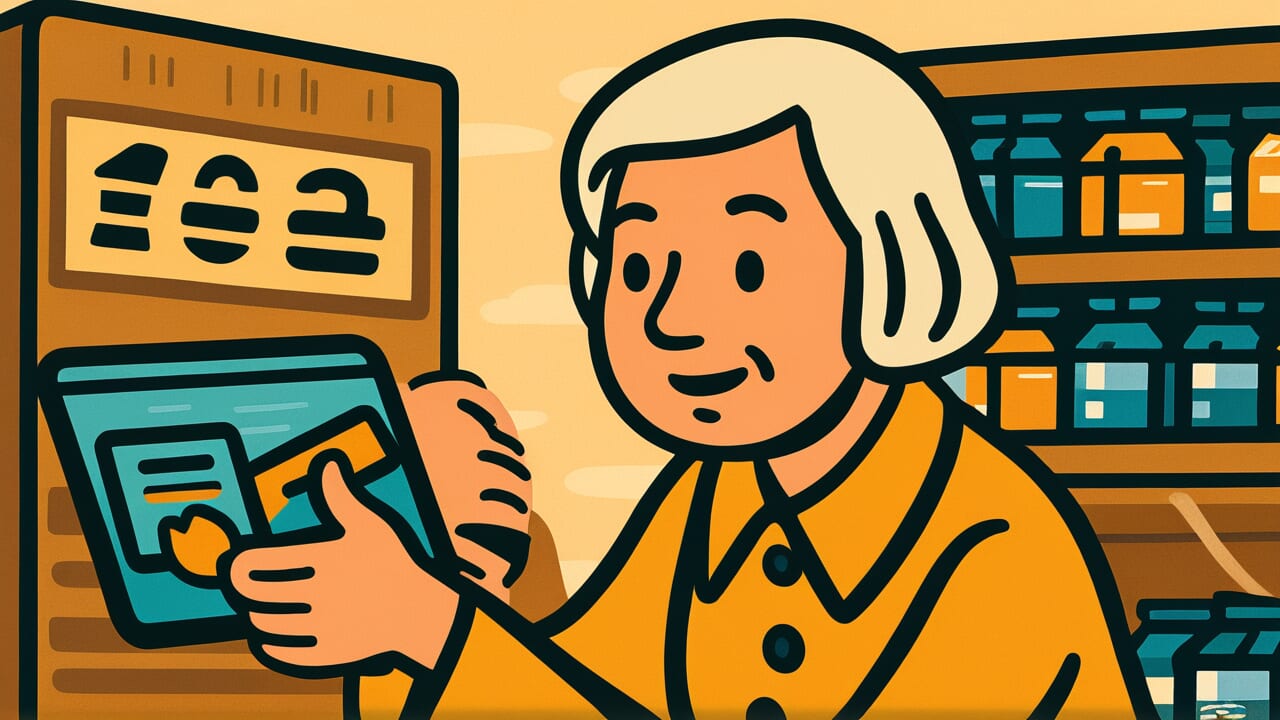How to Read “A grandma-raised child is three hundred cheaper”
Sobo sodachi wa sanbyaku yasui
Meaning of “A grandma-raised child is three hundred cheaper”
This proverb means that people raised by their grandmothers tend to be spoiled. They don’t know how harsh the world can be.
They lack practical skills and patience. As a result, society values them less. “Three hundred cheaper” shows exactly how much less they’re worth.
Grandmothers love their grandchildren so much that they avoid strict discipline. They tend to allow everything. This creates problems later in life.
These children can’t endure hardship when it comes. They struggle to learn from failure. They often lack consideration for others.
People use this proverb when they see spoiled children struggling in society. It’s also used to warn against overprotective parenting.
The proverb doesn’t criticize grandmothers for raising children. It warns against unbalanced parenting that lacks both love and discipline.
Even today, overprotected children struggle to adapt to society. The wisdom of “A grandma-raised child is three hundred cheaper” still rings true.
Origin and Etymology
Unfortunately, no clear historical record shows when this proverb first appeared. However, the structure of the phrase reveals interesting background.
The expression “three hundred cheaper” likely reflects how prices worked during the Edo period. Back then, people were valued based on their upbringing and abilities.
This applied when hiring workers or arranging marriages. “Three hundred” refers to actual currency value at the time. It represented a significant difference, not a small amount.
The term “grandma-raised” is particularly noteworthy. In traditional Japanese family structures, grandmothers often helped care for grandchildren.
However, when a grandmother mainly raised a child despite the parents being present, it suggested special circumstances. Grandmothers were seen as prone to spoiling their grandchildren.
They tended to indulge rather than discipline strictly. This proverb likely emerged from farming villages and merchant families.
These were times when practical skills and patience were highly valued. Society demanded the ability to endure hard work and difficult relationships.
People observed that spoiled children struggled to adapt. This observation created such expressions. The harshness of the words shows how much that society valued practical abilities.
Usage Examples
- That child is like “a grandma-raised child is three hundred cheaper” – he cries at the slightest criticism
- To avoid the saying “a grandma-raised child is three hundred cheaper,” it’s important to be strict with grandchildren sometimes
Universal Wisdom
This proverb has been passed down because it contains a universal truth about human growth. That truth is harsh but profound: love alone cannot raise a person.
Humans gain true strength only through experiencing difficulties and setbacks. Being spoiled feels comfortable. Everyone wants it.
But comfort alone doesn’t build the power to survive in society. A grandmother’s unconditional love brings peace to her grandchild’s heart.
Yet that same love can dangerously prevent preparation for the real world. The proverb addresses the quality of love, not just its presence.
True love doesn’t mean spoiling someone. It means helping them develop the strength to face future difficulties. Wiping away tears is easy.
But cultivating the power to stand up alone is real love. Our ancestors understood something important.
Since humans are social beings, they must learn to live among others. The harsh phrase about being “cheaper” hides a deeper concern.
It worries about the suffering that person will face later. This isn’t simple criticism. It’s a warning born from truly caring about someone.
When AI Hears This
The phenomenon where grandmother-raised children become “three hundred cheaper” can be explained by developmental psychology’s “optimal stress theory.”
This theory suggests children need moderate difficulties and challenges to grow. By tackling tasks that are neither too easy nor too hard, the brain’s problem-solving circuits develop.
Grandmother care reduces market value because skipping a generation creates an “overprotection chain.” Parents can be strict with their own children.
But grandmothers have emotional distance from grandchildren, which paradoxically leads to more spoiling. Research shows overprotected children give up 30 percent faster than normal children when facing their first failure.
They also show delays in basic physical control abilities. They can’t tie shoelaces. They don’t put their hands out when falling.
The numerical value “three hundred cheaper” is fascinating. People in the past knew from experience that grandma-raised children were less useful as servants.
Their wages would be lower. In modern terms, this appears as differences in workplace adaptation and problem-solving abilities.
Raising with love and promoting independence are different things. Ironically, a grandmother’s kindness atrophies the child’s “muscles for overcoming difficulties.”
Lessons for Today
This proverb asks modern people to consider what true kindness really means. In child-rearing and training others, we naturally want to remove all difficulties.
This comes from caring deeply about someone. But it can also rob them of growth opportunities.
Modern society sees increasing overprotective parenting. Many parents and bosses fear failure. They solve problems before they arise.
But this proverb teaches that such actions hurt the person’s future. What matters is balancing love and training.
Watch warmly while letting them face moderate difficulties alone. Support them when they fail, but don’t help immediately. Let them think first.
This approach truly benefits the other person. If you’re raising someone, notice the difference between “spoiling” and “cherishing.”
And if you feel you were raised with too much indulgence, it’s not too late. By facing difficulties instead of running away, your true value will surely increase.



Comments